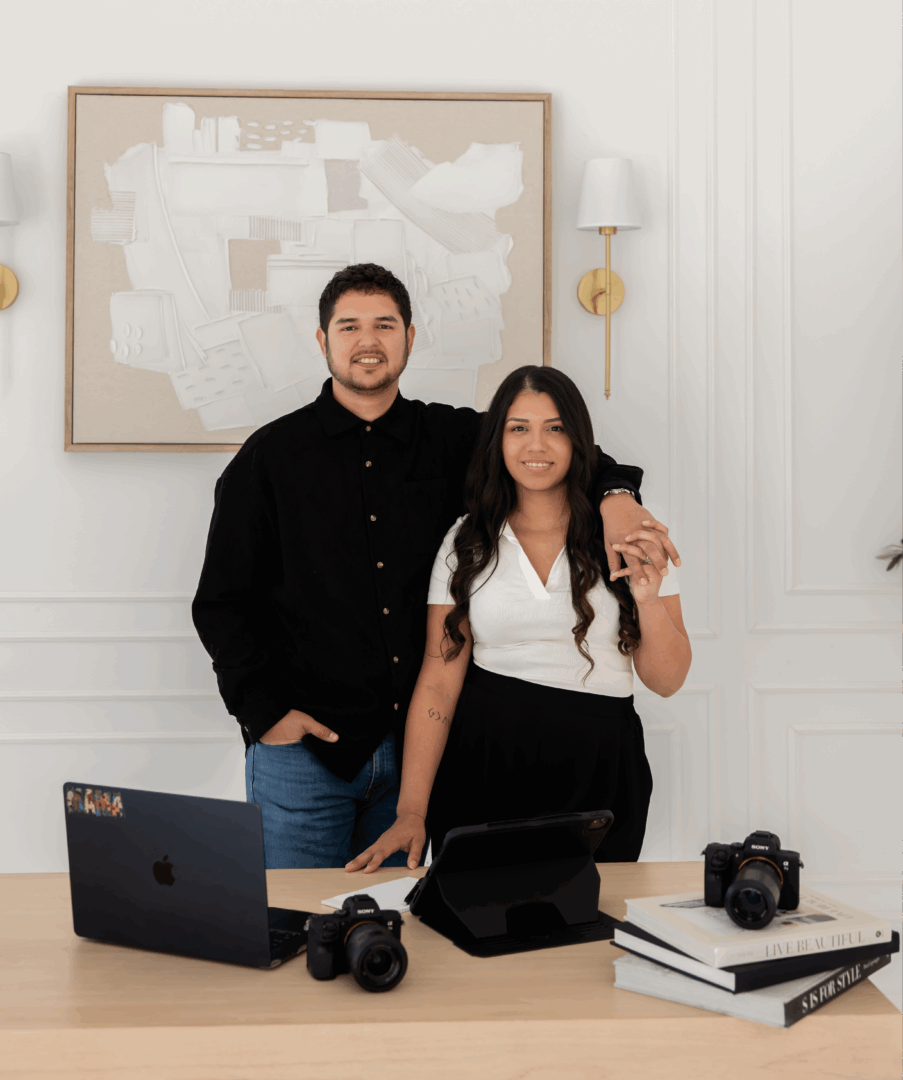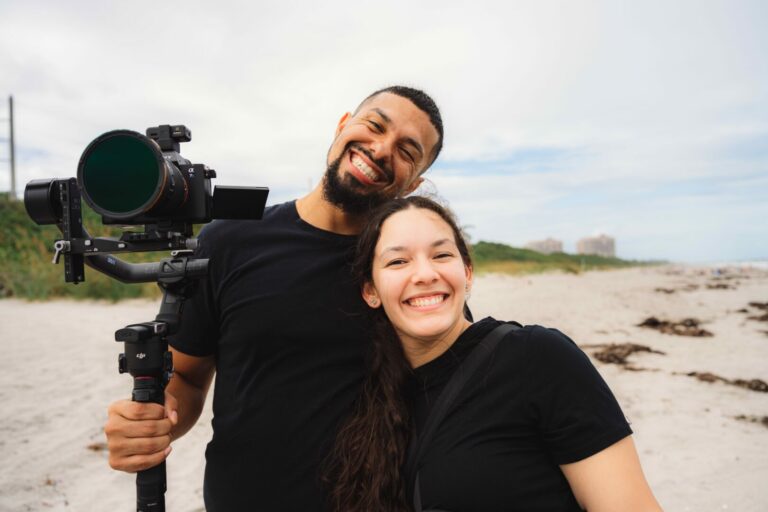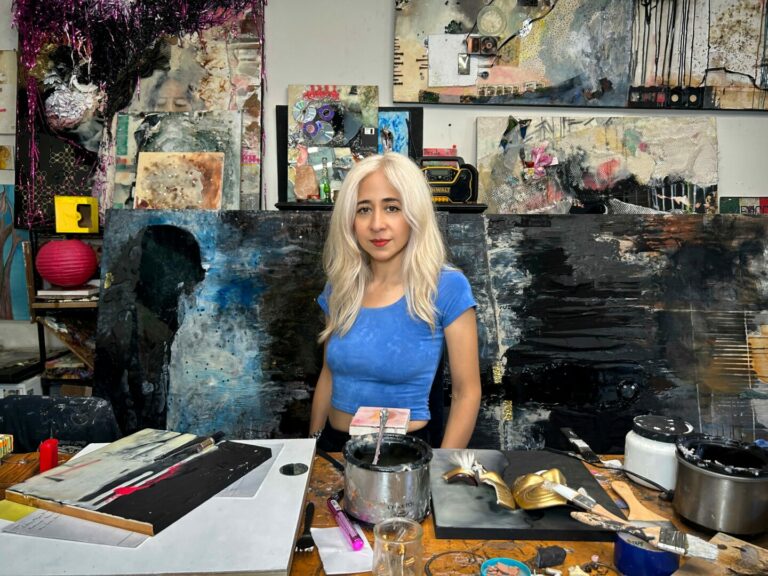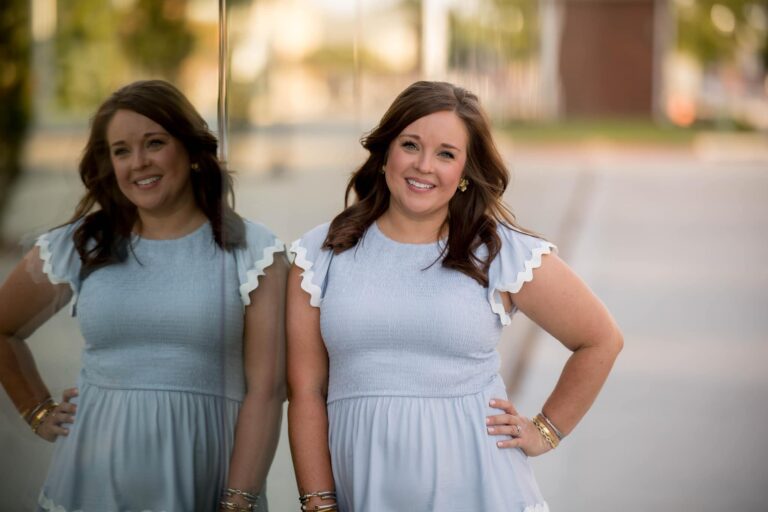Learning from one another is what BoldJourney is all about. Below, we’ve shared stories and insights from phenomenal artists, creatives and entrepreneurs who’ve successfully managed to overcome imposter syndrome.
Joshua David McKenney

Like many creative people, I deal with impostor syndrome on a daily basis. And I actually think it can be positive, insofar as it motivates you to be critical of your work and constantly look for ways to improve. But it’s a balance. When the self-doubt becomes so overwhelming that it cripples your workflow, then you have a problem. Whenever I reach that tipping point, one of the things I ask myself is, are there people who have achieved a lot more than you with a lot less—less talent, less resources, less education, etc.? Of course there are. And that’s motivation to keep going. Everyone has a different path to success. Read More>>
Vasu Tolia

Let me define impostor syndrome before I tell you how I overcame it. Impostor syndrome is the idea that your success is from a lucky break, not because of your talent or qualifications. This concept was first identified in 1978 by the psychologists Pauline Rose Clance and Suzanne Imes. They theorized that women were uniquely affected by impostor syndrome. Since then, research has shown that both genders can experience such feelings. Currently, impostor syndrome can apply to anyone “who isn’t able to internalize and own their successes” – Audrey Ervin. Read More>>
Sierra Rainge

Imposter syndrome is the lingering lie that whispers doubt to you when you make strides to elevate, change, transform or abandon your comfort zone. It’s like an intrinsic saboteur that attempts to keep you safe from failure and disappointment, but in reality all it does it keep you small. In order to combat any challenge, I believe that best tactic is to strike it at its root. So, what is the root of imposter syndrome? It’s the idea or limiting belief that you aren’t good enough, you aren’t worthy enough and you aren’t deserving enough for good things to happen to you. Read More>>
Elise Evans Martin

I think a part of me will never overcome imposter syndrome. As a woman raised in a male patriotical society, becoming a woman’s rights activist was difficult. You constantly question yourself because that is how you were brought up. Read More>>
Patti Reim

I overcame imposter syndrome by listening to the people around me rather the the inner critic. This took time and practice. I also allowed my work and reputation speak for itself. Read More>>
Joshua Goode

Imposter syndrome is something I have always struggled with and continue to struggle with. Art is an ethereal and subjective career path and success is defined in a myriad of ways. It is easy to observe the triumphs of other artists and creators and feel envy and discontent–social media only exaggerates this. To overcome this, I constantly remind myself of my own reasons for creating artworks and develop my work to the best of my abilities. I immerse myself in my studio and artwork production and challenge myself to constantly improve, measuring each new work to those that came before. Because at the end of the day it is the joy of creation that drives me. Read More>>
Andrew Pahmiyer

I feel you overcome imposter syndrome by realizing that everyone has no idea what they are doing. We are all just figuring it out as we go. Whatever it is we are doing, we are all just trying to figure it out. With this thinking, I gained the ability to relax and focus more on being who I am and my own work. Read More>>
Viva Vinson

My journey has been one of constant self-validation and remembrance of what I have overcome and traversed. It is all too easy with ramped social media comparisons to feel like a failure. We can use anything and everything to devalue ourselves, put ourselves down and feel like an imposter. We will use anything. If I don’t have 100,000 followers or if my net worth isn’t a million plus, or if I’m not a size 2. I must always remember that there is no one journey or path that compares to mine. We all walk our own path in our own time and way. Read More>>
Azandria Freeman

I think that’s a challenge that never gets completed, especially as you continue to put yourself in spaces where you are doing something beyond your comfort zone. The more experience you gain, the more you understand how important community building is over just networking. It’s amazing how things seem to fall in your lap as you surround yourself with people that encourage you and see you for who you really are. It takes time, discernment, and trusting your intuition, but with patience the most you can ask for is to be a little better each day. Read More>>
Dr. Joa Macnalie, EdD
I’ve come to learn that as long as you’re doing anything worthwhile, you will meet imposter syndrome along the way. I find this especially true as a believer; those crippling thoughts and ugly whispers tend to get louder as you’re doing the work. As a mental health professional and educator I get asked all the time how do you stop the thoughts? And in full transparency, I don’t know if you can ever really stop them because they’re intrusive; they’re unwanted thoughts that pop up almost always when you’re at a breakthrough (pay attention to that), but I have learned to overcome imposter syndrome by applying the word of God to the situation. Read More>>
Anjilee Ferguson Sara Busalacchi

Imposter syndrome was something that both co-founders, Anjilee and Sara have dealt with at different times in life. When co-founding Mountain Point Academy, they recognized they were in a new space with high-achieving academic intellects. Neither of them received degrees in education, so it was a struggle in the beginning for them to recognize they had a place at the table, taking into consideration the years of experience they already had in helping other online schools get up and running. They developed the needed expertise with hands-on training and continued to foster their own attitudes of lifelong learning, working to stretch themselves to build their portfolio and confidence in their unique skill sets that have helped Mountain Point Academy be successful today. Read More>>
Andrea LaRosa

I honestly don’t know if you ever really get over it. I think you learn how to live with it and embrace it. It becomes your motivator to succeed. When it comes to imposter syndrome you have two choices, either freeze in fear and never accomplish anything. Or acknowledge it, welcome it, and let it drive you towards greatness. As most entrepreneurs know, you have to constantly change and grow or business will fail. With each step of growth is a new level of imposter syndrome. Read More>>
Leslie Moore

One of my favorite quotes from Amy Cuddy is “Fake it until you become it!” This statement led me through imposter syndrome when I began my yoga teaching journey in 2010. I founded Yo Soy Candle in 2011 and The Candle Creation Bar in 2020. Our gorgeous, sun-filled retail shop and workshop space are located in Portland, Oregon. Read More>>
Jeff Berney

Every time I read a great book, I am simultaneously filled with joy and dread. Joy because I love stories and the accompanying mind movies my own imagination adds to the prose. And I love reading something I know an author poured their soul into, spending hours upon hours battling against their own inner demons as the they pull the story from their sub-conscience onto the page. Then comes the dread. Can my stories ever be as good as the one I just read? Why do I even try? Read More>>
Elissa Jane Mastel

Understanding that the itty bitty sh$%&tty committee in your head is not real. Limiting beliefs are instilled in us at such a young age by those who give us painful feedback. Whether you heard it from bad teachers, parents, childhood friends, or the media, we’ve all experienced hearing things that hurt. Read More>>
Danielle Hernandez

So, I have my hands in quit a few areas. I am a full time health coach, we own a global intelligence firm that I support on the back end, I manage some social media marketing on the side, and a mother of 2 boys and maintaining a 50 acre growing farm and home, and some times I even get to have a personal life! I should mention my husband travels about 60% of the time for work, so I’m usually running a lot of this solo! When it comes to wearing all of these different hats it can easily start to feel like I am not doing enough or that I’m not proficient/productive enough at what I am doing. Read More>>
Martin Motnik

I can’t say that I’ve overcome imposter syndrome, but what helped me was watching several videos (like TED Talks on YouTube) by highly competent and accomplished people who confessed that they are struggling with the issue as well. If people like that whom I highly respect suffer from the same problem, then I don’t have to feel too bad about myself feeling like I’m just winging it until somebody will inevitably call me out on it. I think that with my biography I’m particularly prone to feel imposture syndrome since I’m mostly self-taught in my line of work. Read More>>
Amy Lin

My first experience with imposter syndrome occurred during my transition from being a realtor to becoming the wealth mindset coach. I remembered clearly that one day when I was pondering how I was going to get clients into my coaching program, I started feeling anxiety in my body. I felt like a fraud and my inner voice was chattering, “who do you think you are, you are not a coach.” “Who is going to listen to you?” And I didn’t even know it was anxiety, until a friend of mine said to me, “Amy, I think you are having an anxiety attack.” That’s when it dawned on me that I’ve hit the “terror barrier”. Read More>>
Leilani Lealaimatafao

This was probably my biggest obstacle and until I figured that out, I would never feel satisfied. No matter how hard I worked and what I accomplished, I couldn’t find fulfillment. It was bothering me so bad, I just couldn’t enjoy any of my achievements. It felt like I was just supposed to do all these things, nothing less or more. I didn’t realize what it was up until the beginning of the year (2023) when someone said “sounds like you have imposter syndrome” following my nonchalant response to their compliments. I was offended at first but was told to really look into it because they believed that was the only issue with my growth. Read More>>
Sheree Gregory

When did I do that? Haha. It is still something I struggle with and probably always will. Being self – employed requires you to push yourself into new areas almost daily.
As I work through Imposter Syndrome I’ll sometimes put myself in JR Gregory mode ( that’s my Dad) Watching him talk about business and seeing the pride that he had in the work he did still inspires me today. I fake it until I make it essential and remind myself along the way that I have the right to share my passion with the world. Read More>>
Kena Sosa

I’ve struggled with imposter syndrome a lot, especially when trying on new creative hats. I remember one specific time, an old friend from my punk era had asked me to do some vocals on a recording. I am, even in my current confident state, not a great singer, so I was terrified. I tried to practice at home and just ended up with a sore throat. Nonetheless, the day came and I sat in my car outside the studio stalling my hardest. My sore throat was no excuse in this genre, so they gave me a Dr. Pepper and waited for me to step up. I didn’t want to let my friend down, but thought once they heard me it would be worse. Read More>>
Generra Ingram-Hawthorne

Imposter Syndrome (IS) is a form of self-doubt that affects people with intellectual, learned, inherited, and perfected skills. Personally, I have not completely overcome this; I have found ways to work around it. Imposter Syndrome tends to creep up on me whenever I embark on a new project or reach higher success. For instance, when I am in a room with other professionals, I sometimes wonder inwardly and outwardly, “Why am I here?” “Do I deserve to be here?” “Am I just filling a diversity quota?” These thoughts may overwhelm me at times. However, modifying my thoughts can help me push past this negative thinking. Instead of “Why am I here?” I remind myself that my hard work has paid off and I deserve to be here. This mindset change allows me to appreciate the moment instead of dwelling on negative thoughts. Read More>>
Kris Chaney

I learned late that I had imposter syndrome. I think I was under the “fake it ’til you make it” spell for so long I didn’t realize that I had already become what I was aspiring to be, but what I was aspiring to be kept evolving. It’s still something I have to learn to work through. With a lot of things in my life, I calculate and evaluate and make the best decision I can based on the information available. Emotion rarely comes into it and most often comes last after my decisions have been made. Read More>>
Aleasa Word

For years I felt I didn’t measure up to others in the various industries where I worked or provided professional services becasue I did not have a college degree. After high school I went into the workforce and planned to go back to school after a year or so; however, that year or so turned into a few decades. Eventually I felt to get an further I had to go back to school. It took me a very long time to complete my first degree while working full-time. Once I graduated I was ecstatic. It was then that I realized my degree was a terrific accomplishment but it was not the ticket for making me belong in the circles I was already in. Read More>>
Teleonte Smith-Tasco

I went through a period of time in modeling where I felt that I was being inauthentic.
I was trying to keep up with the latest trends. By doing so; I was presenting myself in ways that strayed away from who I am and what I represent.
I had to take some time away and reflect on the content I was presenting thus far and consider how said content was portraying me. Read More>>










